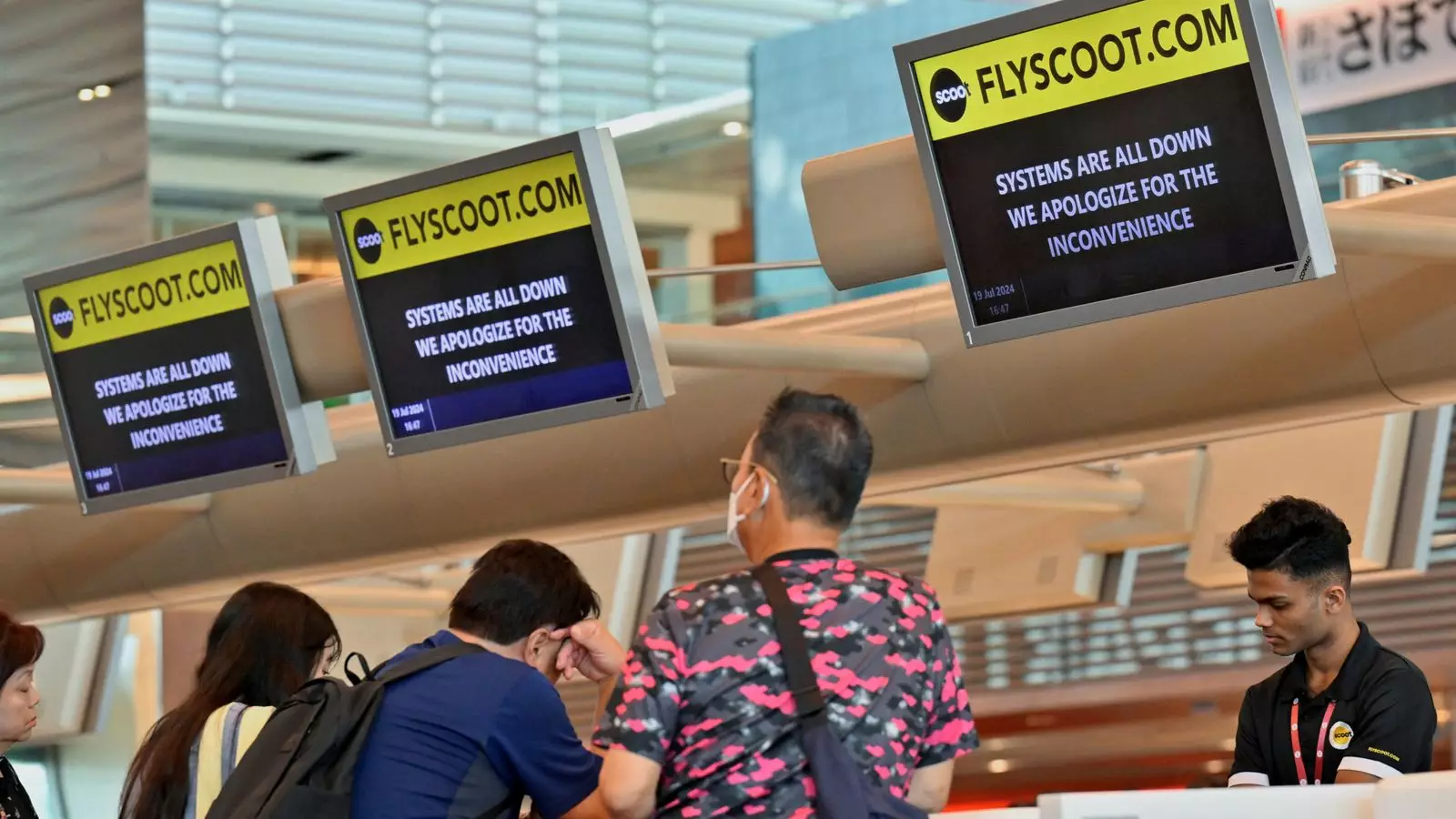The recent global IT outage has wreaked havoc on transport networks worldwide, causing chaos at some of the busiest airports. Major hubs like London Heathrow, Singapore’s Changi Airport, Schipol Airport in Amsterdam, and Melbourne Airport in Australia have all faced significant disruptions. The shutdown of online systems operated by Microsoft has led to problems with check-ins, security, and overall airport operations.
Passengers have been left stranded as flights were canceled, and delays mounted. As of Friday morning, 1,167 flights had already been canceled globally, with the number expected to increase. In Europe, Amsterdam’s Schipol Airport, the busiest on the continent, has been grappling with delays averaging 78 minutes. The situation has forced many airports to resort to manual systems, including the use of whiteboards at Belfast International Airport to provide flight information.
The impact of the IT outage on passengers has been significant, with many travelers expressing frustration and confusion. One passenger at Berlin airport shared how despite technical issues being resolved, flights later in the day were still being canceled. Another passenger, Anna, who was meant to fly to Croatia with her children, described the lack of information provided to passengers, with only a piece of paper posted on a wall to update them on flight statuses.
In the UK, scenes of long queues and packed airports have been the norm, with passengers facing delays and cancellations across various airports including Edinburgh, Gatwick, Luton, Stansted, Liverpool, Manchester, and Birmingham. The situation has led to chaos and frustration among travelers, with some waiting in line for hours and feeling overwhelmed by the sheer number of people.
Friday was anticipated to be the busiest day for UK flight departures, with over 3,214 departures scheduled – the highest number since October 2019. The IT outage has added to the challenges faced by the aviation industry, with passengers and airlines grappling with the disruptions. While UK air traffic control provider Nats reported that its systems were operating normally, the effect on airports and airlines was evident.
Transport Secretary Louise Haigh acknowledged the IT failures affecting transport operators and terminals, highlighting the collaborative effort between industry and government to address the issue. Despite the challenges, there were no known security issues reported, providing some reassurance to passengers and authorities alike.
The impact of the IT outage extended beyond airports, affecting the UK train network as well. Fourteen companies under Rail Delivery Group, including Avanti, c2c, Great Western Railway, and others, reported disruptions. Issues ranged from train operators being unable to access driver diagrams to real-time customer information platforms and ticket machines being affected.
National Rail pointed out that the IT outage was causing problems across the entire network, leading to potential short-notice train cancellations. However, affected customers were allowed to use their tickets on alternative services like the London Underground and buses at no additional cost. Network Rail reassured customers that the majority of the rail network remained open, despite the challenges posed by the IT outage.


Leave a Reply